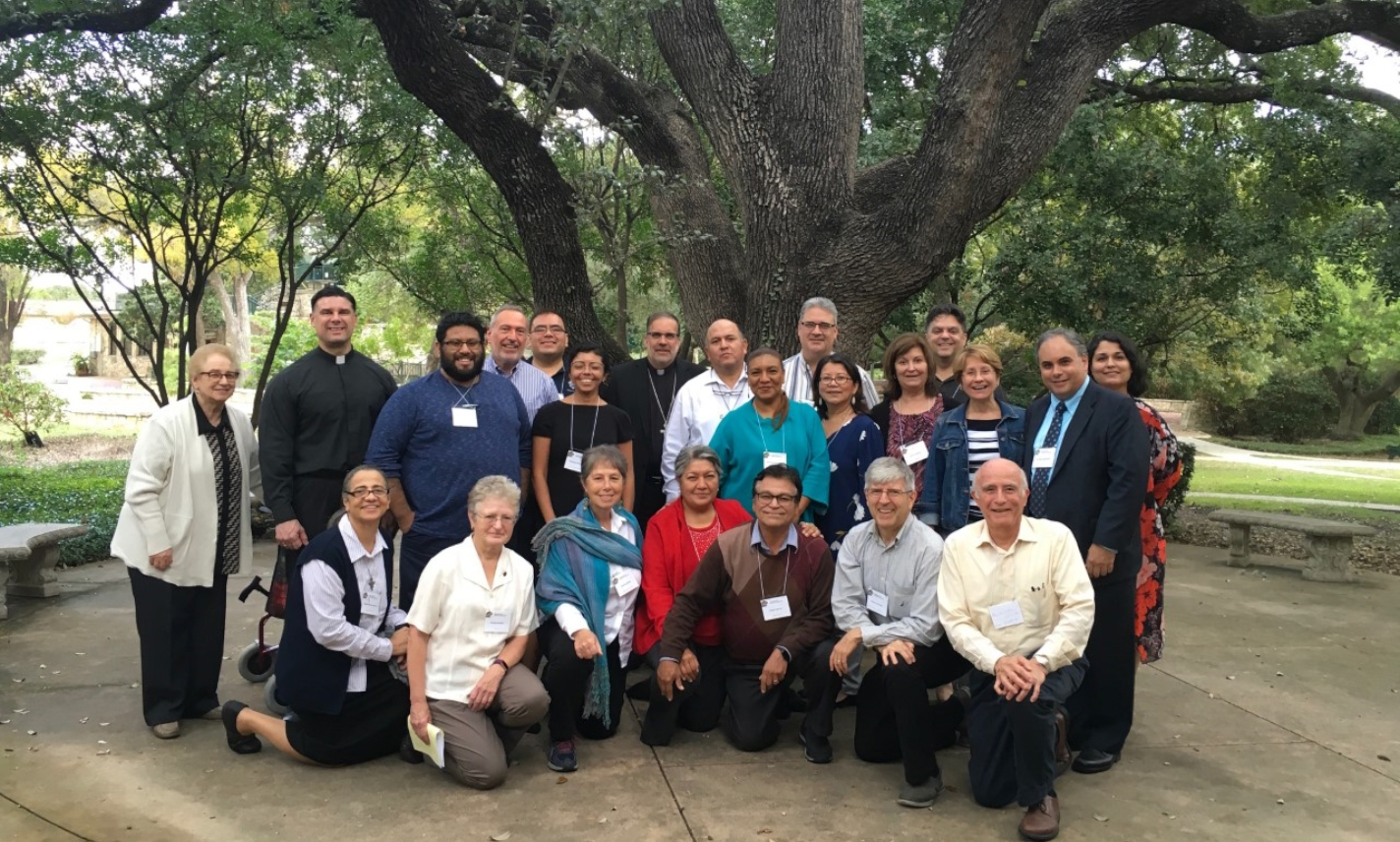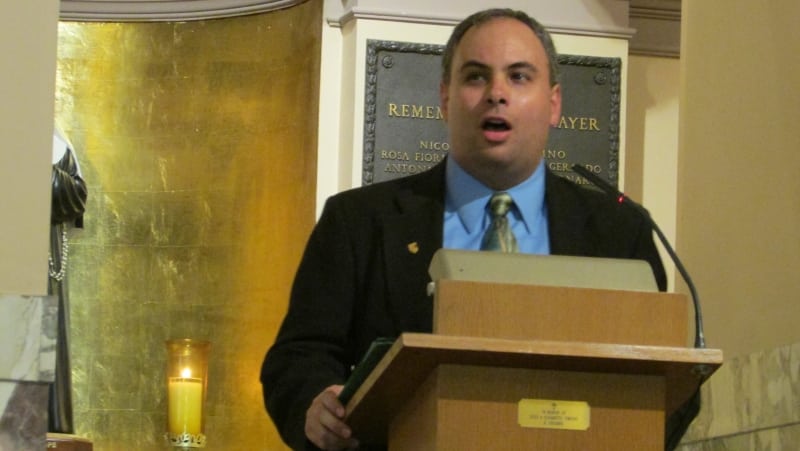Memorial of St. Maximilian Mary Kolbe, priest and martyr | August 14, 2021
In the first reading, Joshua knows that the end of his life is near. And he uses what energy and strength he has left after years of fighting and violence and strife that went along with establishing the confederacy of the 12 tribes of Israel in the Holy Land, to remind the people that the most important thing is to be faithful to the commands of God, because as the psalm says, God is the source of life that endures.
The Gospel reminds us that Reign of God belongs to those who step forward towards Jesus, like the children did.
Today the church celebrates the memorial of Fr. Maximilian Kolbe, a Conventual Franciscan Friar from Poland, who was killed by the Nazis in World War II at the Auschwitz death camp in Germany. It was there where, over 4 and a half years 1.1 million people were killed – 1 million of them Jews – in very barbaric ways, as part of the Shoah – or Holocaust. Overall, throughout the war, the Nazis killed over 6 million Jews throughout Europe. In addition, thousands of others from minority groups were also killed. It will always be known as one of the most barbaric acts of human history.
Fr. Kolbe’s death was declared a martyrdom by Pope St. John Paul II when he canonized him in 1981, because Fr. Kolbe offered himself in place of another Polish man Franciszek Gajowniczek, also a Catholic, who was chosen to be executed by the whims of the SS soldiers in the camp.
Upon hearing the man cry out that he had a wife and children, Kolbe offered to take his place, and he joined many others in an underground cell for many days, slowly starving to death.
It is said that during that time, Kolbe would be seen by the guards leading prayers to God and singing songs of the Blessed Mother, Mary, to whom he had a special devotion. It was said the cells echoed with the singing of those condemned prisoners. Finally, after all the others had succumbed to this terrible treatment, the last remaining prisoner alive was Fr. Kolbe, and they killed him by giving him a lethal injection.
The man who had been spared when Kolbe took his place amazingly survived Auschwitz and lived for may years after. He tells of the experience of that moment when Fr. Kolbe took his place:
“I could only thank him with my eyes. I was stunned and could hardly grasp what was going on. The immensity of it: I, the condemned, am to live and someone else willingly and voluntarily offers his life for me – a stranger.”
In another place in Scripture, the apostle Paul uses almost the same phrasing to describe Christ’s death on the cross for us.
Fr. Kolbe served Christ faithfully, in perfect imitation of him, even in his suffering and death. Like Joshua of old, he proclaimed with his life that he would serve God alone and follow God’s ways – and not the ways of the false gods of Nazism, racism, and racial violence.
In faith, Fr. Kolbe, a true child of God, reached out to Christ and received a blessed reward – life eternal, and an example of heroic virtue for generations to come. Fr. Kolbe is even recognized by many in the Jewish community as a “Righteous Among the Nations” for his sacrifice – the highest honor the Jewish community can bestow on a non-Jew who helped to save lives during the Holocaust. That honor was also bestowed on his Franciscan monastery in Poland, which sheltered Jews during the war.
Sadly, in our time, we observe even some who would call themselves Christian embracing the type of racist ideologies and the violence which the Nazi’s perpetrated. While we are not all called by God to the heroic virtue to which Fr. Kolbe was, we are reminded by his example that we follow in the path of Jesus Christ and are called to work with all our strength to end all forms of hate and ideologies which seek to destroy or harm different ethnic groups and people.
Let us pray for the courage to stand against the evil of racism, hatred, and violence wherever we encounter it, so that, as true children of God – the light of Christ may shine through, as it did in the life of Maximillian Kolbe, saint and martyr of the church.


 Request Dr. DelMonico's professional services for a liturgical, ministerial or leadership consultation, or for an academic or public presentation.
Request Dr. DelMonico's professional services for a liturgical, ministerial or leadership consultation, or for an academic or public presentation.